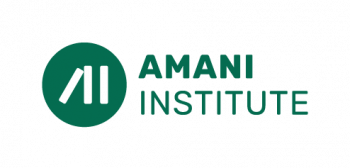SOCIAL ENTREPRENEURS IN AFRICA, BACKED BY THE LIKES OF MICROSOFT AND IKEA, ARE ATTEMPTING TO SATISFY A HUGE DEMAND FOR LEARNING ACROSS THE CONTINENT. COULD THEY FIND THE NEXT STEVE JOBS IN THE PROCESS? BY ANYA KAMENETZ
If you want to study computer programming at a sub-Saharan African university, bring a pencil. “We used to write programs on paper,” says Ahmed Maawy of Mombasa, Kenya. “Say, write a program that calculates the area of a square. And you write that whole piece of code on paper. That’s the test. It’s so crazy!” The private technical institute that Maawy attended in 2002-2003 closed the doors to its computer labs outside class hours, giving students little chance to practice executing actual code. For this he was paying 120,000 Kenyan shillings a semester–that’s $3,526 per year in a country where the national income per capita is $816. And at least that college was accredited. Another school where Maawy enrolled turned out to be a scam. For my students the Internet was just for emailing.
Incredibly, Maawy is among the lucky–as well as exceptionally smart, determined, and hardworking–aspiring African scholars. To compensate for the weak schools he attended, Maawy went to cybercafes, where he accessed pirated textbooks over torrent sites and used sites like Codeproject and Android.com to teach himself web and mobile development.
Ahmed Maawy He put himself through school by working two jobs and doing other students’ programming projects for them, while photocopying his classmates’ lecture notes, showing up in class only for exams. He gained practical experience working with Ushahidi, one of Kenya’s most robust technology companies, and did a post-grad year at Amani Institute, one of many startups starting to transform the education landscape in the country.
Today Maawy is a tech entrepreneur with several ongoing concerns: (D8a, Siftdeck, and is working on launching Apps4Africa), plus MombasaTechCommunity, a mission-driven venture that aims to provide everything that his university education did not to other young hopefuls: networking, mentorship, and technical expertise. “The major objective is not to make money, it’s to empower these individuals, because Mombasa to me is home.”
To keep reading click here.




